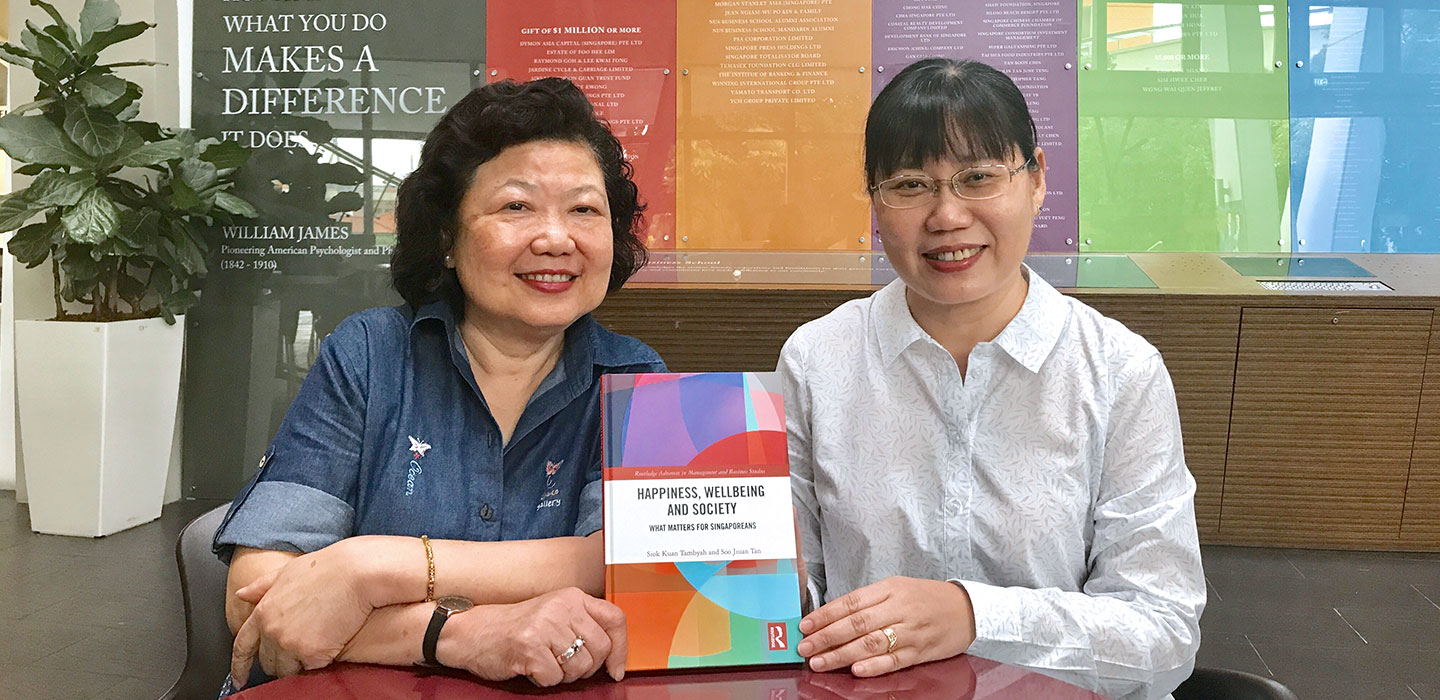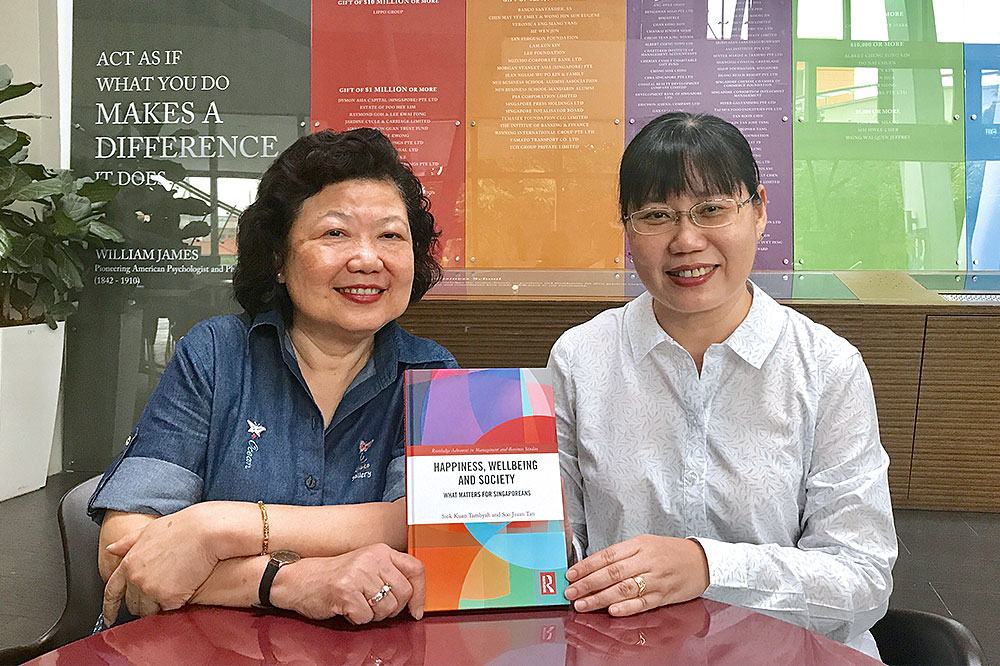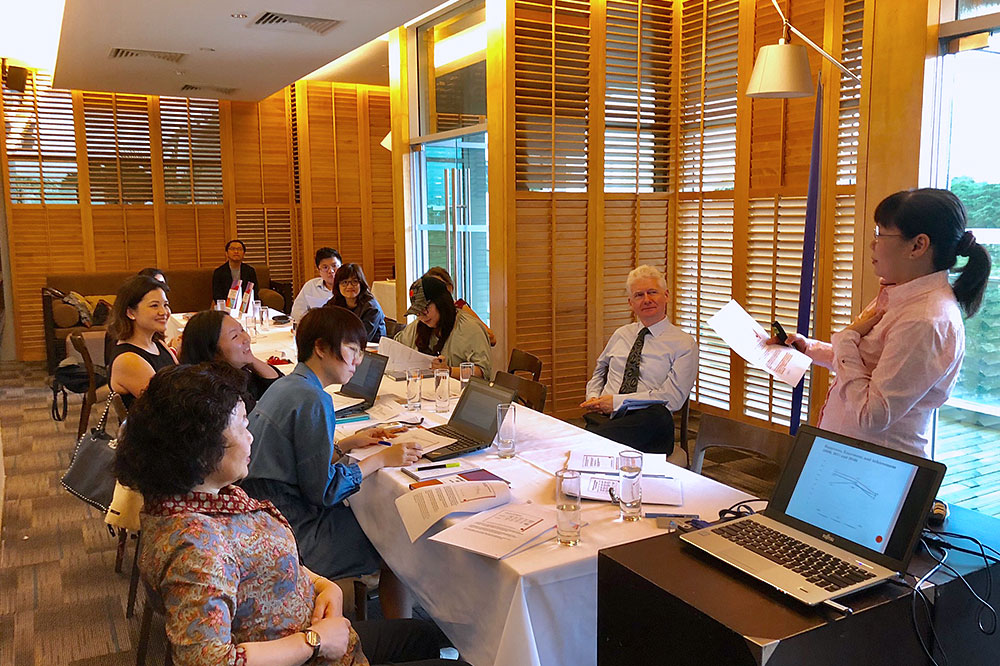Tracking a remarkable 20 years of ongoing research on quality of life (QOL) issues (QOL surveys done in 1996, 2001, 2006 and 2011), Associate Professors Siok Kuan Tambyah and Soo Jiuan Tan released the latest findings on the 2016/2017 Quality of Life survey in their new book Happiness, Wellbeing and Society – What matters for Singaporean.

Marketing profs release latest Quality of Life Survey in new book

As Singapore grows as a nation, the happiness and wellbeing of Singaporeans and what matters to them change. The study provides insights into Singaporeans’ satisfaction with life domains and aspects of living in Singapore, namely happiness, enjoyment, achievement, economic wellbeing, values, trust, politics, and more through nationwide surveys using representative samples, including insights from the most recent 2016 Quality of Life (QOL) Survey. With the previous studies, the authors also share a longitudinal perspective of how the various aspects of Singaporeans’ wellbeing have evolved through the years.

For instance, the authors found that:
- Singaporeans were less happy, enjoyed life less, and felt a decreased sense of achievement in 2016 compared to 2011. Education and household income had the most impact on Singaporean’s self-assessment of their happiness, enjoyment, achievement, control and purpose.
- Singaporeans’ perceptions of economic wellbeing demonstrated they were comfortable when it came to buying items for basic needs, meeting obligatory payments and doing things they want to do. However, making major purchases like a car, home appliance or paying for significant home repairs saw more than half of Singaporeans (55.5%) being unable to do so in 2016, though this is an improvement from 2011 (63.6%).
- The ratings for satisfaction with democratic rights declined from 2011 to 2016. Singaporeans were generally dissatisfied with their right to criticise the government, freedom of speech and to gather and demonstrate. For views about politics, the perceptions of the efficacy of voting and the empowerment of voters were less favourable.
- In terms of affective aspects of wellbeing, Singaporeans were less happy, enjoyed life less, and felt a decreased sense of achievement in 2016 compared to 2011.
- Sense of Belonging, Fun and Enjoyment, and Self-fulfillment were the three values which had the most significant influence on Singaporeans’ subjective wellbeing (happiness, enjoyment, achievement, control and purpose).
- Singaporeans were found to be wary of others, with a lack of generalized trust. (Comparing data from the Asian Barometer 2006 Survey, the ASEAN Barometer 2009 Survey and our 2016 QOL Survey.)

Takashi Inoguchi, Eminent Scholar-Professor, Institute of Asian Cultures, J. F. Oberlin University, Japan, said, “The pronounced strength of this book is that it organises the text with the question ‘what matters for Singaporeans’ and presents analyses from the level of individual responses to that of societal features quite seamlessly, thus nicely capturing the evolution of Singapore with its time-tested resilience after the Global Crisis in 2008. It is hoped that Singapore and Southeast Asia would be a model of QOL resilience to the rest of the world.”
To read more, the eBook can be found here: www.routledge.com/9780815365570


